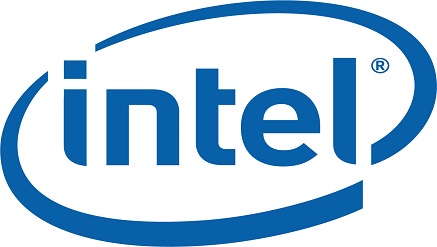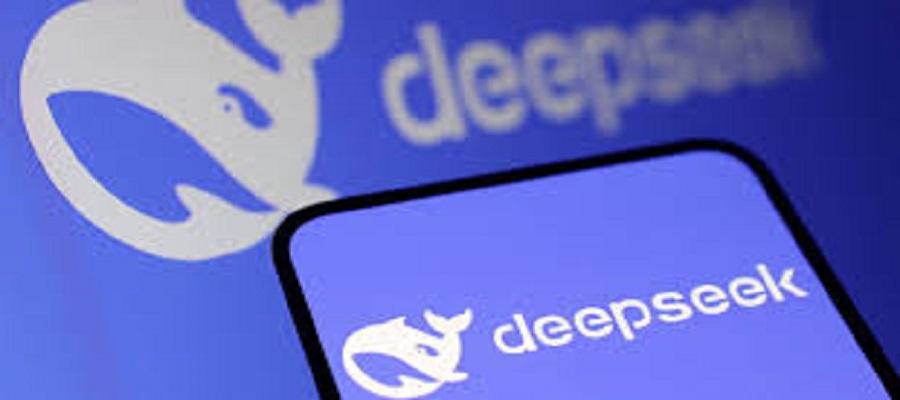E-Business
Intel Make Top 5 Global Security Appliance Market Leaders

Security appliance growth continues in second quarter of 2014, with Cisco, Check Point, Fortinet, Palo Alto Networks and Intel identified as the worldwide leaders.
According to the International Data Corporation (IDC) Worldwide Quarterly Security Appliance Tracker, the security appliance market continues to see positive momentum.
In the second quarter of 2014 (2Q14), worldwide factory revenue grew 7.3% year over year to $2.2 billion.
This was the 19th consecutive quarter of positive growth, dating back to the fourth quarter of 2009.
Second quarter shipments also grew, totaling 500,178 units, up 4.9% over the 476,903 units shipped in 2Q13.
Geographically, Latin America saw the highest growth in the quarter at 24.5%.
Asia/Pacific also saw strong appliance sales, with revenue increasing 11.3% compared to 2Q13.
North America grew 6.0% in the quarter while accounting for 39.4% of market revenues.
Western Europe saw its highest growth since the first quarter of 2011, with revenue increasing 6.8% year over year.
Cisco continues to lead the overall security appliance market with 18.4% share of factory revenue in the second quarter with year-over-year growth of 19.7%.
Check Point again held the number two spot for the quarter as revenue increased 9.8% year over year.
Fortinet remained the third largest security appliance vendor as its market share increased to 7.3% on growth of 24.6% over 2Q13.
Palo Alto Networks rose to the number four spot on growth of 57.6%. Intel Security rounded out the top 5, growing 12.9% year over year and accounting for 5.3% of the market.
At the functional market level, the Unified Threat Management (UTM) segment saw the largest year-over-year revenue increase at 21.5% and accounted for 43.6% of security appliance revenue in 2Q14.
The Firewall market remained constant year over year, and represented 19.2% of security appliance revenue in the quarter.
The Content Security and Intrusion Detection and Prevention (IDP) segments made up 17.2% and 16.0% of the market, respectively, with Content Security declining -0.9% and IDP declining -1.2% year over year.
“With countless Web site hacks and data thefts, network encryption and information protection are more important than ever,” said Ebenezer Obeng-Nyarkoh, Senior Research Analyst, Worldwide Trackers Group “Trying to track new security vulnerabilities can be overwhelming because so many Web-based applications use services that are not up to date on all of their network and services.”
IDC’s Worldwide Quarterly Security Appliance Tracker is a quantitative tool for analyzing the global security market on a quarterly basis.
The Tracker includes quarterly shipments and revenues (both factory and customer), segmented by vendor, security function, product family, model, region, operating system, and price band.
International Data Corporation (IDC) is the premier global provider of market intelligence, advisory services, and events for the information technology, telecommunications, and consumer technology markets.
IDC helps IT professionals, business executives, and the investment community to make fact-based decisions on technology purchases and business strategy.
E-Business
South Korea Joins List of Countries Banning DeepSeek over Security Concerns

South Korean authorities have temporarily blocked new downloads of the DeepSeek artificial intelligence (AI) app, citing concerns over the company’s handling of user data.

The country’s Personal Information Protection Commission (PIPC) announced the decision on Monday, saying that the Chinese AI startup had failed to fully comply with South Korea’s data protection laws.
According to PIPC, DeepSeek recently appointed legal representatives in South Korea and admitted to partially neglecting regulatory considerations regarding user privacy.
“The Chinese startup appointed legal representatives last week in South Korea and had acknowledged partially neglecting considerations of the country’s data protection law,” the PIPC said.
The commission added that the app’s service would resume once the company implements improvements in accordance with national privacy laws.
According to Reuters, when asked about South Korea’s move, a spokesperson for China’s foreign ministry said the Chinese government prioritises data privacy and security, ensuring compliance with legal standards.
The spokesperson also said China does not require companies or individuals to collect or store data in violation of laws.
The ban follows similar actions by other governments.
On February 4, Australia prohibited the use of DeepSeek on government devices due to security concerns.
Italy’s privacy regulator recently blocked the AI service, citing the company’s failure to address data policy issues.
Taiwan has also warned about potential risks related to cross-border data transmission and information leaks.
Also, regulators in Ireland and France have launched investigations into DeepSeek’s data-handling practices.
DeepSeek gained global adoption for its advanced human-like reasoning capabilities and open-source model.
In January, it surpassed OpenAI’s Chatgpt as the most downloaded free app on the Apple store.
E-Business
AU Endorses Nigeria as AfCFTA Digital Trade Champion

The African Union (AU) has officially designated Nigeria as the Digital Trade Champion under the African Continental Free Trade Area (AfCFTA) Digital Trade Protocol, citing the country’s leadership in digital enterprise and innovation.

The endorsement came at the 38th Ordinary Session of the Assembly of Heads of State and Government, which concluded on Sunday in Addis Ababa.
Nigeria’s proactive role in advancing the digital trade protocol, adopted in February 2024, was a key factor in the decision.
The AfCFTA Digital Trade Protocol encompasses eight annexes covering crucial areas such as rules of origin, digital identities, cross-border data transfers, online safety, and financial technology. The protocol is expected to provide a robust framework for Africa’s digital economy.
According to a statement issued on Monday by Special Adviser to the President on Information and Strategy, Bayo Onanuga, former President of Niger Republic and AU AfCFTA Champion, Mahamadou Issoufou, praised Nigeria’s leadership, particularly for convening the Digital Economy Roundtable in January.
“No organization, region, or continent has negotiated or adopted such a comprehensive legal instrument on digital trade, positioning the African continent to benefit from the digital economy for innovation and job creation,” Issoufou said in his progress report to the AU Assembly.
He also highlighted Africa’s growing influence in digital innovation, particularly in mobile banking and financial technology, and noted that the protocol would create an enabling environment for young African entrepreneurs.
“The AfCFTA Protocol on Digital Trade will establish a conducive environment for these young people to fully participate in Africa’s digital economy,” Issoufou added.
Reflecting on the roundtable in Abuja, he commended President Bola Tinubu and his administration for facilitating discussions with key stakeholders.
“The Roundtable was attended by young pioneers in Fintech, mobile banking and other areas of the digital economy. It was evident from the discussions that young people are eager to take advantage of Africa’s digital economy through the AfCFTA Protocol on Digital Trade”, he said.
Speaking at the AU summit, Nigeria’s Minister of Industry, Trade and Investment, Dr. Jumoke Oduwole, described the AU’s endorsement as a milestone in Africa’s economic development.
“Africa has demonstrated global leadership by pioneering the first-of-its-kind AfCFTA Protocol on Digital Trade—establishing a comprehensive regulatory framework,” Dr. Oduwole stated.
She emphasized that the protocol is a “game changer” for the continent, predicting that it would generate millions of jobs, contribute billions to Africa’s GDP, and attract significant investments in digital infrastructure.
E-Business
Schmidt, Ex Google Chief Says AI Risky in Terrorist Hands

Eric Schmidt, former Google CEO has expressed concerns about the extreme risks posed by artificial intelligence (AI) falling into the hands of terrorists or rogue states.

Eric Schmidt, former Google CEO
He warned that nations such as North Korea, Iran, and Russia could adopt AI technologies to develop weapons capable of causing significant harm, including biological weapons.
Schmidt urged governments to oversee private tech companies, emphasising, “The real fears I have are not the ones most people discuss about AI, I talk about extreme risk.”
“I’m always worried about an ‘Osama Bin Laden’ scenario, where truly evil individuals take control of some aspect of modern life to harm innocent people,” he added.
With private companies driving AI advancements, he stressed the need for careful government monitoring and regulation. “It’s really important that governments understand what we’re doing and keep their eye on us,” he said.
His remarks followed a two-day AI summit in Paris, where the UK and the U.S. declined to sign a communiqué outlining the future direction of AI. The declaration on “inclusive and sustainable artificial intelligence for people and the planet” was endorsed by 57 countries, including India, China, the Vatican, the EU, and the African Union Commission.
The UK justified its decision, stating that the agreement lacked “practical clarity” on global AI governance and national security concerns.
Schmidt supports U.S. export controls restricting the sale of advanced AI microchips to certain countries, aiming to slow adversaries’ progress in AI research.
He also highlights the importance of international collaboration on AI safety, suggesting that cooperation with nations like China is essential to addressing global AI challenges.

 E-Financial2 days ago
E-Financial2 days agoSERAP Gives CBN 48-Hour Ultimatum to Withdraw ATM Fee Hike

 E-Financial2 days ago
E-Financial2 days agoFG Seeks Fresh $300m Loan from World Bank for Health Security

 General News2 days ago
General News2 days agoFG Drops Merger of NCAA, NAMA

 News2 days ago
News2 days agoBinance Chief Insists Some FG Officials, Reps Demand $150m Bribe

 News2 days ago
News2 days agoinDrive Unveils Cashless Bank Transfer Feature in Nigeria

 E-Financial2 days ago
E-Financial2 days agoCardinalStone Acquires Radix Pension Managers

 Telecom2 days ago
Telecom2 days agoNITDA Pledges to Foster Innovation with Cloud Infrastructure and AI Applications

 Telecom18 hours ago
Telecom18 hours agoToriola, MTN Nigeria CEO again Defends Tariff Hikes amidst Backlash


























